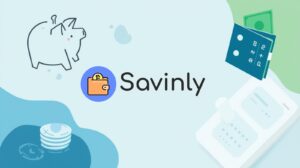Why Habits Matter
Let’s get something out in the open, just you and me—bad money habits? Yeah, we all have them, whether we admit it out loud or not. Maybe you feel like you “should have it figured out by now,” but somehow, your wallet keeps leaking cash, bills pile up, or your savings goals feel more like wishful thinking than reality. Listen—you’re definitely not alone. If you ever glance at your bank balance and wonder, “Where the heck did my money go?” (like, seriously, where?), you’re in good company. But here’s the thing: most people don’t go broke from a single splurge. It’s these sneaky, everyday money habits—tiny daggers to your financial health—that slowly drain your future.
So, let’s cut to the chase. Below you’ll find the 10 bad money habits you need to break today—not tomorrow, not next month, but today. And trust me, shaking off even just one or two of these can open doors to a richer, less stressful life. Ready to take an honest look with me? Let’s dive in.
The Quick List: 10 Habits To Toss Out
Here’s your lightning-fast checklist—no fluff, just the greatest hits (or misses, depending on how you look at it). Recognize any of these?
- Overspending and living beyond your means
- Using credit to cover basic expenses
- Not budgeting or tracking your money
- Skipping out on an emergency fund
- Ignoring bills and due dates
- Emotional or impulsive shopping
- Lifestyle creep (spending more after every raise)
- Forgetting about irregular or surprise expenses
- Paying just the minimum on debts
- Avoiding saving for retirement or investing
This isn’t a guilt trip, friend. It’s your shortcut to sanity and financial breathing room.
How These Habits Hold You Back
Let’s be honest: breaking these habits isn’t just about “extra” money or building a fat bank account to show off on social media. If you’re always robbing Peter to pay Paul, scrambling to cover surprise expenses, or living paycheck to paycheck, you know about financial stress. That chronic “will my card go through?” anxiety, the shame of late fees, the dread when another bill arrives—none of that is good for your wallet, your heart, or your sleep.
And it does real damage. According to countless studies (and, honestly, most of our bank statements), Americans spend billions annually just paying off interest and late fees, while almost 37% struggle to pay a $400 emergency expense without borrowing. Those numbers aren’t there to scare you, just to show that being “in the red” isn’t your personal shortcoming—it’s a widespread issue. There’s a way out, and it starts with changing your habits.
Breaking Down The 10 Bad Money Habits
Overspending & Living Beyond Your Means
This is the granddaddy of all bad money habits. Can I level with you? It’s so easy to slide into. We live in a world where one-click shopping or “treat yourself” culture looks normal. But spending more than you make (even “just a little”) snowballs—fast. Suddenly you’re juggling credit card payments and can’t save for what really matters.
Fix it: Start with a no-judgment look at where your money goes. List every expense for a month. Look for patterns. Got five streaming subscriptions you don’t watch? Pause half of them. Set a rule: If it’s not in your budget, wait 24 hours. You might find the urge passes.
Using Credit For Everyday Expenses
Look, credit cards aren’t evil. But leaning on them for coffee or groceries? That’s like building a house on sand. Credit feels painless (so swipe, swipe…), but 20% interest will bite you. The balance grows faster than you can pay it off, and suddenly your financial freedom gets buried under a pile of minimum payments[4].
Fix it: Pay for regular stuff with cash, debit, or a prepaid card. If you have to use credit for essentials, that’s a big red flag—time to rework the budget. Even a tiny buffer in your checking account makes a huge difference.
Not Budgeting Or Tracking Spending
Budgets have a boring reputation—something only super-organized people do. But hear me out: a budget is just your money plan. It helps you stay out of overdraft hell and lets you buy things with intention, not regret. If you’re not tracking your money, you’re basically driving with your eyes closed[1][7].
Try this: Pick a super-simple method. Write stuff down in a notebook. Use an app. Or, better yet, try the 50/30/20 rule: 50% to needs, 30% to wants, 20% to savings/debt. Perfection isn’t the goal—clarity is.
While you’re building good habits, you might find tips in articles like 5 bad money habits especially helpful for beginners.
Skipping The Emergency Fund
Flat tire, sick pet, unexpected trip to the ER—life happens, ready or not. If there’s no cushion in your savings, a minor crisis turns major, fast. And borrowing to cover it? That just makes things worse down the road[1].
Get started: Don’t aim for perfection here. Even $500 set aside can be a total lifesaver. Automate a small transfer every payday, and remember—this fund is only for real emergencies.
Ignoring Bills And Due Dates
Have you ever missed a bill just because “life got busy”? Me too. But late fees, shut-off notices, and credit score dings can haunt you way longer than you’d expect. A single missed payment lingers on your credit report for years[5].
Quick tip: Set all your bills to autopay if you can. At the very least, create calendar reminders. Opening mail as soon as it arrives helps too. Don’t let fear of the bill make things worse—out of sight isn’t out of life.
Emotional Or Impulsive Shopping
Swiping your card when tired, stressed, or bored is called emotional spending for a reason—it feels good in the moment, but guilt sets in fast. It’s like hungry grocery shopping for your feelings, and it’s a budget killer. According to a study by MIT, buying with credit activates the brain’s “pleasure” center, which can sabotage your self-control[4][7].
Pause and ask: Do I need this, or do I need a break? Try a 24-hour rule before buying anything over a set dollar amount. Sometimes, a walk or a chat with a friend beats a shopping binge.
Ever wondered how these habits develop in our younger years? There’s a lot to learn from how students manage (or mismanage) money—take a look at bad spending habits of students for insights and strategies.
Lifestyle Creep: Spending More After Every Raise
Ever notice how that raise you waited all year for somehow disappears? That’s lifestyle creep—the silent upgrade of dinners out, gadgets, even apartments. Suddenly you’re earning more, but saving none of it[4]. It happens quietly, bit by bit.
The fix: The next time your paycheck grows, challenge yourself to save at least 50% of that raise, before you ever see it in your checking account.
Forgetting About Irregular Or Surprise Expenses
Car insurance, annual fees, holiday gifts—these aren’t surprises, yet so many budgets forget about them. Then, wham: they arrive, and you scramble or swipe a card.
How to win: Grab a calendar and list any non-monthly expenses. Estimate the cost, divide by 12, and build a little “sinking fund” every month for each one. You’ll feel like a financial fortune teller.
Paying Just The Minimum On Debts
If you’re only sending minimum payments, banks love you—but your future self won’t. Interest snowballs out of control, the debt never drops, and you shell out way more over the years[1][4].
Power move: Pick one debt (the smallest or the highest interest—your call). Throw every spare dollar at it until it’s gone, then tackle the next. Seeing progress builds momentum. Want to compare the popular debt payoff methods? Here’s a handy table:
| Strategy | Focus | Emotional Benefit | Financial Benefit |
|---|---|---|---|
| Snowball | Pay off smallest balance first | Quick wins, motivation | Higher interest may linger |
| Avalanche | Pay off highest-interest first | Takes longer to see results | Saves the most money over time |
Avoiding Retirement Saving Or Investing
This is the “I’ll get to it someday” habit. The problem? Someday rarely comes. The earlier you start—even if it’s just small auto-contributions to a 401(k) or Roth IRA—the more you benefit from compounding (that magical snowball of interest-on-interest)[1].
Start now: If your employer offers a match, grab it—never leave free money on the table. Already tackling debt? You can still stash a little away for the future. It adds up more than you think.
Focus On The Good: Real Money Habits That Work
Okay, inhale. Breaking 10 habits might sound overwhelming, but don’t let perfection be the enemy of progress. Try picking just one weak spot and commit to a small, steady change. Maybe you’ll track spending for a week. Maybe you set up one tiny weekly transfer to savings. Every single move counts.
What does this look like in real life? Take Maya, a friend of mine. She went from constant overdraft fees and hiding from her credit card statement to having a $1,000 emergency fund and feeling—wait for it—calm about money for the first time in her adult life. She started small: switching to cash for groceries and setting her phone to remind her about bill due dates. No magic, just consistency.
Want even more real-world examples or financial habits examples that stick? Check out stories from everyday people who conquered their worst money habits and built good money habits that make their future a lot brighter.
Tools & Next Steps
- Download a free budget app or print a basic worksheet.
- Automate one savings transfer—even if it’s just $5 a week.
- List those non-monthly “surprise” expenses.
- Pick your debt payoff method (snowball or avalanche).
- Tell someone—yep, accountability is powerful.
If you need a head start, templates and more detailed guidance are everywhere online. And don’t be afraid to reach out to a real human—a certified financial counselor can help you build a game plan when the numbers feel overwhelming.
Let’s Wrap This Up (But Not Your Wallet!)
Look, breaking bad money habits isn’t about being perfect or punishing yourself. It’s about building a more secure, peaceful life—step by step, day by day. We all slip up (I still have a weakness for impulse eBook buys), but what matters is starting again. Today. Right now. Because every tiny good choice you make adds up faster than you think.
So, what will you tackle first? Want to share your progress—or maybe your own stories of triumph or trip-ups? I’d genuinely love to hear about them. And if you found a trick that works wonders for breaking those stubborn habits, don’t keep it to yourself. Let’s cheer each other on. You’ve got this.













